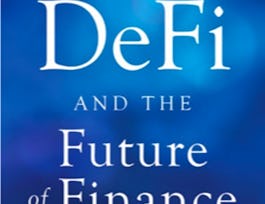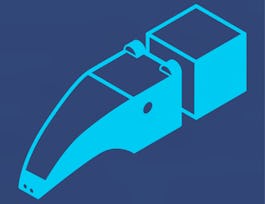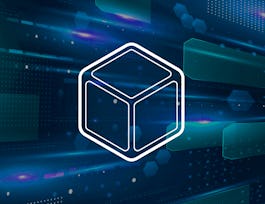Today, large intermediaries establish trust in our economy and control the movement, storage, and allocation of money and assets. The status quo, however, is rife with inefficiencies. In this course, we’ll address the many challenges of the status quo and discuss how cryptoassets, smart contracts, new identity systems, and new financial business models can help overcome them. You’ll learn how blockchain technology empowers individuals, entrepreneurs, and businesses with the tools they need to help level the playing field and to participate in the value they create. By the end of this course, you’ll learn how and why transacting on the blockchain can help us bring about a future that is faster, fairer, and more distributed than the world we inhabit today.



Transacting on the Blockchain
This course is part of Blockchain Revolution Specialization


Instructors: Don Tapscott
Sponsored by Syrian Youth Assembly
30,044 already enrolled
(911 reviews)
Recommended experience
What you'll learn
Describe seven types of cryptoassets, and explain what it means to “tokenize” an asset
Explain what a smart contract is, as well as various applications of smart contracts
Explore the features of a distributed, self-sovereign identity system
Describe eight core functions of the financial services industry and explain how blockchain will disrupt each of these functions
Skills you'll gain
Details to know

Add to your LinkedIn profile
16 assignments
See how employees at top companies are mastering in-demand skills

Build your subject-matter expertise
- Learn new concepts from industry experts
- Gain a foundational understanding of a subject or tool
- Develop job-relevant skills with hands-on projects
- Earn a shareable career certificate


Earn a career certificate
Add this credential to your LinkedIn profile, resume, or CV
Share it on social media and in your performance review

There are 4 modules in this course
Blockchain is the first native digital medium for value. Consequently, we are witnessing one of the largest transformations of wealth in human history—from paper-based analog assets to digital ones. In this module, students will learn about nine different kinds of cryptoassets, including cryptocurrencies, protocol tokens, non-fungible tokens (NFTs), stablecoins, securities tokens, governance tokens, exchange tokens, natural asset tokens, and central bank digital currencies (CBDCs).
What's included
14 videos12 readings4 assignments2 discussion prompts
In this module, you will learn what smart contracts are and how they work. We will discuss how blockchain-based smart contracts can enable individuals and organizations to reduce transaction costs, minimize the need for third-party intermediaries, and improve productivity, security, and privacy.
What's included
11 videos4 readings5 assignments2 discussion prompts
Accessing large, centralized systems such as email, health insurance, or a bank account requires the provision of various identifiers—for example, government-issued ID cards, self-selected passwords, or biometric data. However, identifier-based systems are problematic—both administratively and philosophically. In this module you will learn about five problems with identifier-based systems and explain how a distributed self-sovereign identity system, deployed on the blockchain, can resolve many of these issues.
What's included
9 videos3 readings3 assignments2 discussion prompts
The current global financial system is riddled with inefficiencies, uneven developments and bizarre contradictions. Blockchain technology has the potential to bring about profound changes to financial services. In this module, you will learn how blockchain technology will disrupt the core functions of the financial services industry, offering individuals and organizations alike real choices in how they create and manage value.
What's included
8 videos4 readings4 assignments1 discussion prompt
Offered by
Why people choose Coursera for their career




Learner reviews
911 reviews
- 5 stars
82.87%
- 4 stars
14.48%
- 3 stars
2.08%
- 2 stars
0.32%
- 1 star
0.21%
Showing 3 of 911
Reviewed on May 31, 2019
This course gave me a good understanding on how the blockchain can be applied in several industries and how smart contracts work.
Reviewed on Aug 30, 2020
You will learn about the Transacting on the Blockchain, smart contract, IBM project, etc. the course is not made for developers or programmers.
Reviewed on Jan 19, 2021
It is an excellent course that addresses the technical aspects related to blockchain very well in a good tone that is very easy to understand.
Recommended if you're interested in Business

Duke University

University of California, Irvine

Open new doors with Coursera Plus
Unlimited access to 10,000+ world-class courses, hands-on projects, and job-ready certificate programs - all included in your subscription
Advance your career with an online degree
Earn a degree from world-class universities - 100% online
Join over 3,400 global companies that choose Coursera for Business
Upskill your employees to excel in the digital economy




